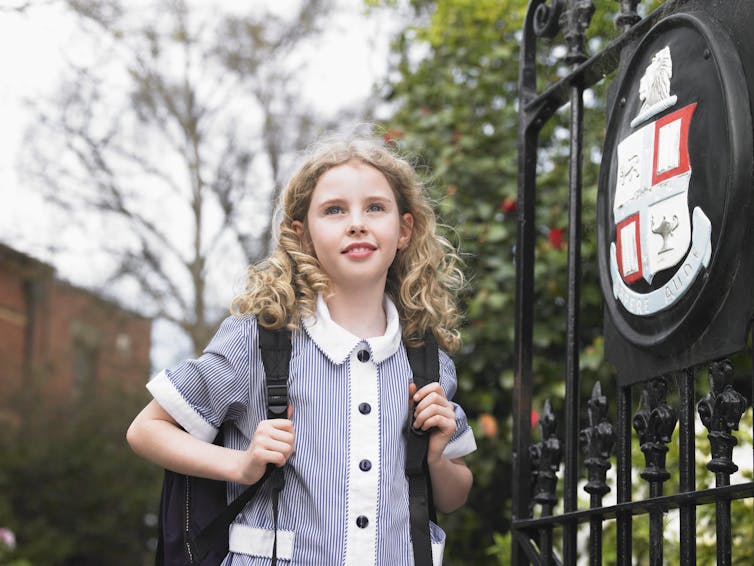Peter Mortimore
I have been aware of problems in the education system for as long as I can remember.
As a child growing up in the late 1940s, I was persecuted by the fear of failing the 11+. Both my elder sisters had succeeded and my first brush with probability theory was recognising that similar success for me had to be questionable. And for 80 percent of each generation it was so, with many children bearing this hallmark of educational failure for the rest of their lives.
One of my jobs as a young teacher was in a school with 12 classes streamed on the basis of three timed tests. The validity and reliability of such assessment was highly questionable, yet it determined the course of future lives. One of my – very clever – pupils moved up a stream each year but, because he only stayed for the five years of compulsory secondary schooling, never even reached the upper half.
As a classroom researcher in the 1970s I sat through hours of lessons often in poorly designed, uncomfortable classrooms. Some lessons were stimulating but others were desperately boring regurgitations of an uninspiring syllabus.
Today the education system, in many ways, is much improved. Yet urban eleven-year-olds and their parents face a bewildering array of schools. City parents, in such a market economy, have to gamble on which preferences to express, taking into account their geographical location, the SATs results of their offspring, their religious (or non-religious) leanings and their willingness to pay for private tuition.
Academies – answerable only to the Secretary of State – founded with the noble aim of providing a better deal for poor children (just like the “public schools” of past centuries) are re-positioning themselves and using their generous resources to attract pupils with the best odds of success. Free “parent-led” schools are popping up even where there is ample provision and are frequently dedicated to particular faiths. Exams appear to be growing more difficult and universities are getting more expensive. Most sadly, English childhood appears to be much less happy than that of many of our neighbouring countries.
The English education system seems as far from a universal, inclusive, system as it ever was. Yet, the best teaching I have seen anywhere has often been in England and, in general, schools seem well-led. I believe these problems have been caused by recent governments’ (from all political parties) determination to turn the education system into a competitive market economy complete with league tables and punitive inspections.
In contrast, the Nordic school systems that I have observed operate in a different, happier, culture. They provide high quality pre-school provision and admit children into school one or even two years later than in England. The pace of learning is more relaxed and, wherever possible, failure is avoided. Nordic young people continue developing and frequently overtake the ‘English early starters’ and become well-educated adults.
So what can we do to improve the system? How can we learn from our North European neighbours? How can we draw on the strengths and mitigate the weaknesses of our current arrangements? And how can we persuade our Government to create a fairer, happier and more effective education system better suited to life in the 21st century?
My proposals are to try and ensure greater fairness in the system:
• Fairness in all funding: no more favoured schools getting large bonuses. The only payment above actual costs should be an extra sum for pupils with special needs.
• Fairness in governance – with all schools having uniform powers and working within the same national context.
• Fairness in what can be taught – with a limited National Curriculum available to all pupils.
• Fairness in licence to innovate in organisation and pedagogy.
• Fairness in inspections – with the aim being to ensure that all schools are above an acceptable level rather than attempting to fine grade them on the basis of unreliable – and very limited – knowledge.
• Fairness in assessment – helping as many pupils as possible reach the highest levels rather than seeking artificially to restrict success on the mistaken Kingsley Amis principle that “more will mean worse”.
• Fairness in the allocation of pupils to schools so that all schools recruit a “balanced intake” – pupils who find learning easy and those who do not; those coming from relatively advantaged social, cultural and economic family backgrounds and their opposites.
Of course these are huge challenges. My suggestions require much elaboration and refinement. They will be resisted by the politicians associated with the current system and by parents satisfied with the privilege enjoyed by their children. Other people will have to be convinced that what is proposed will be better.
But such a set of ideas offer a chance of solving the worst problems and of creating a fairer education system better suited to life in the 21st century.
I’ll be talking about these ideas at a seminar at the IOE on 10 December. hope you will come along and contribute to the discussion.
 Close
Close




